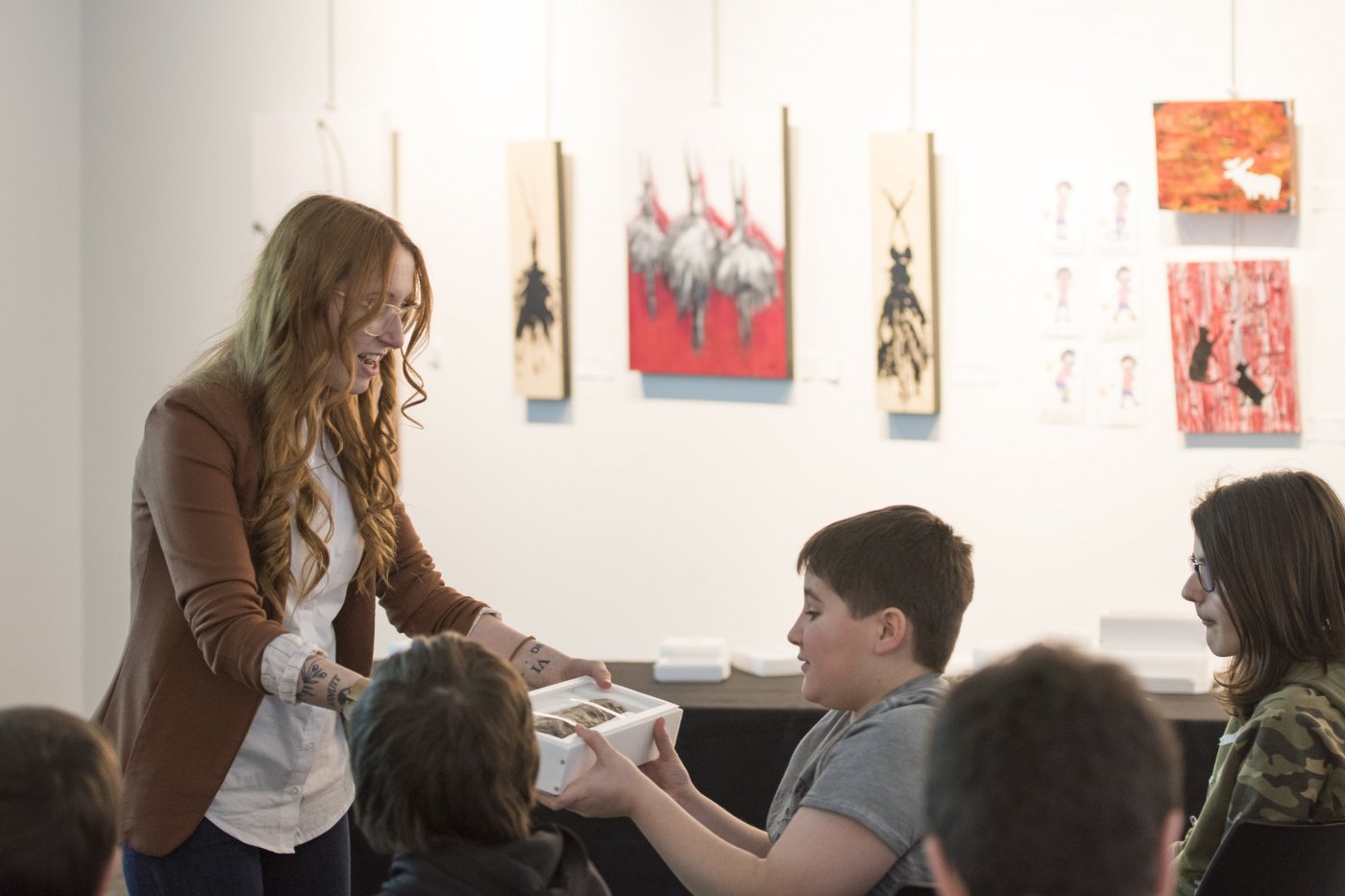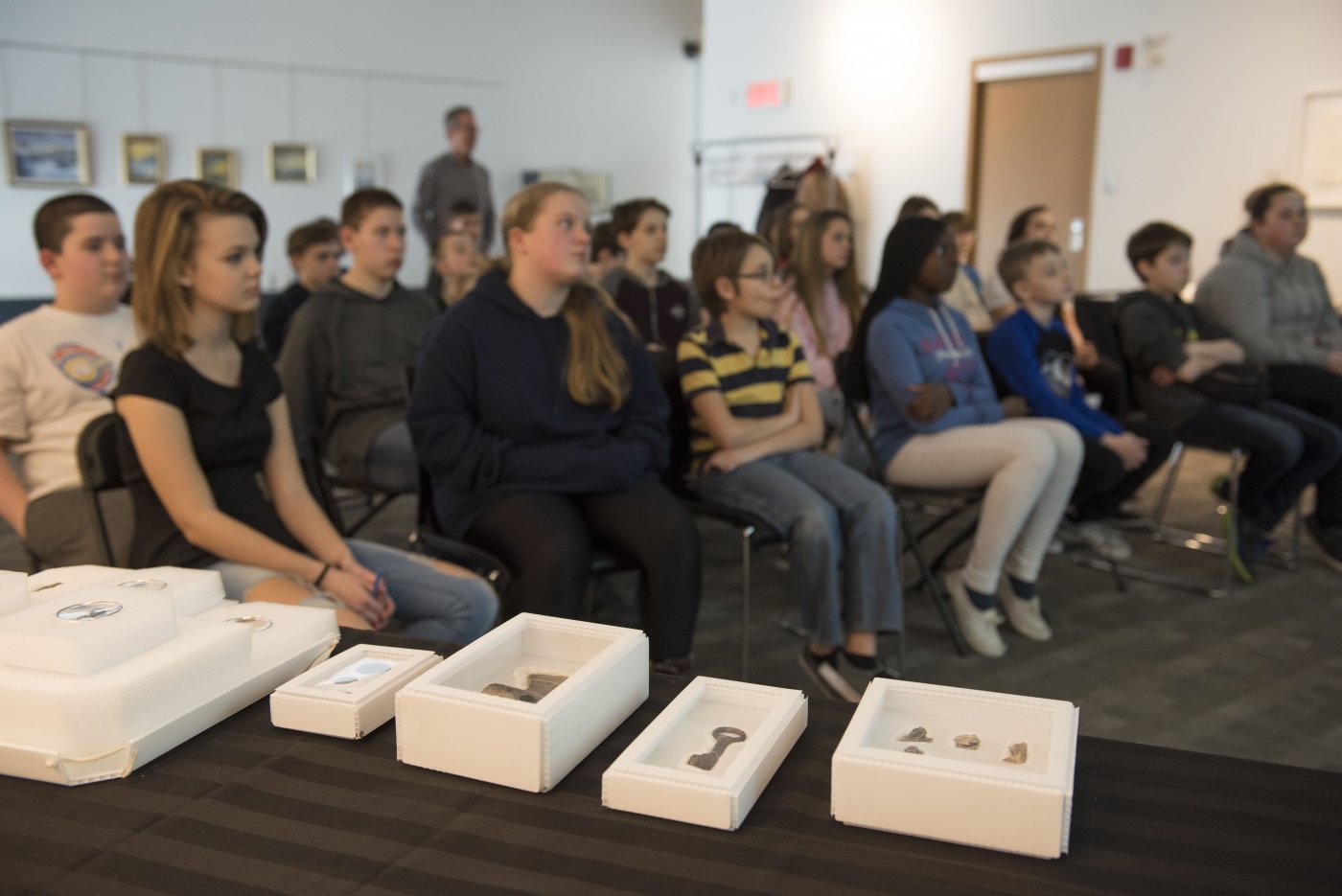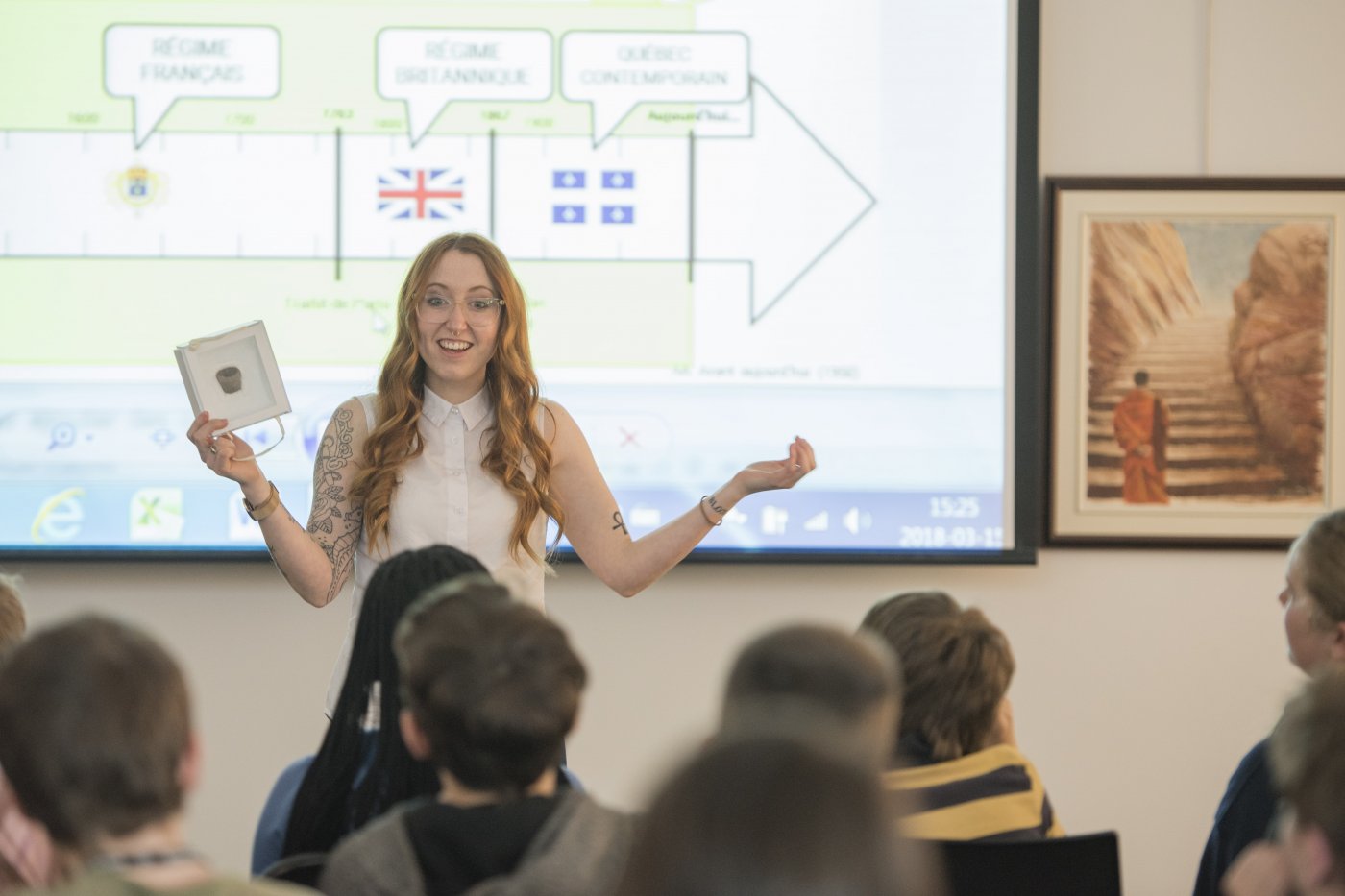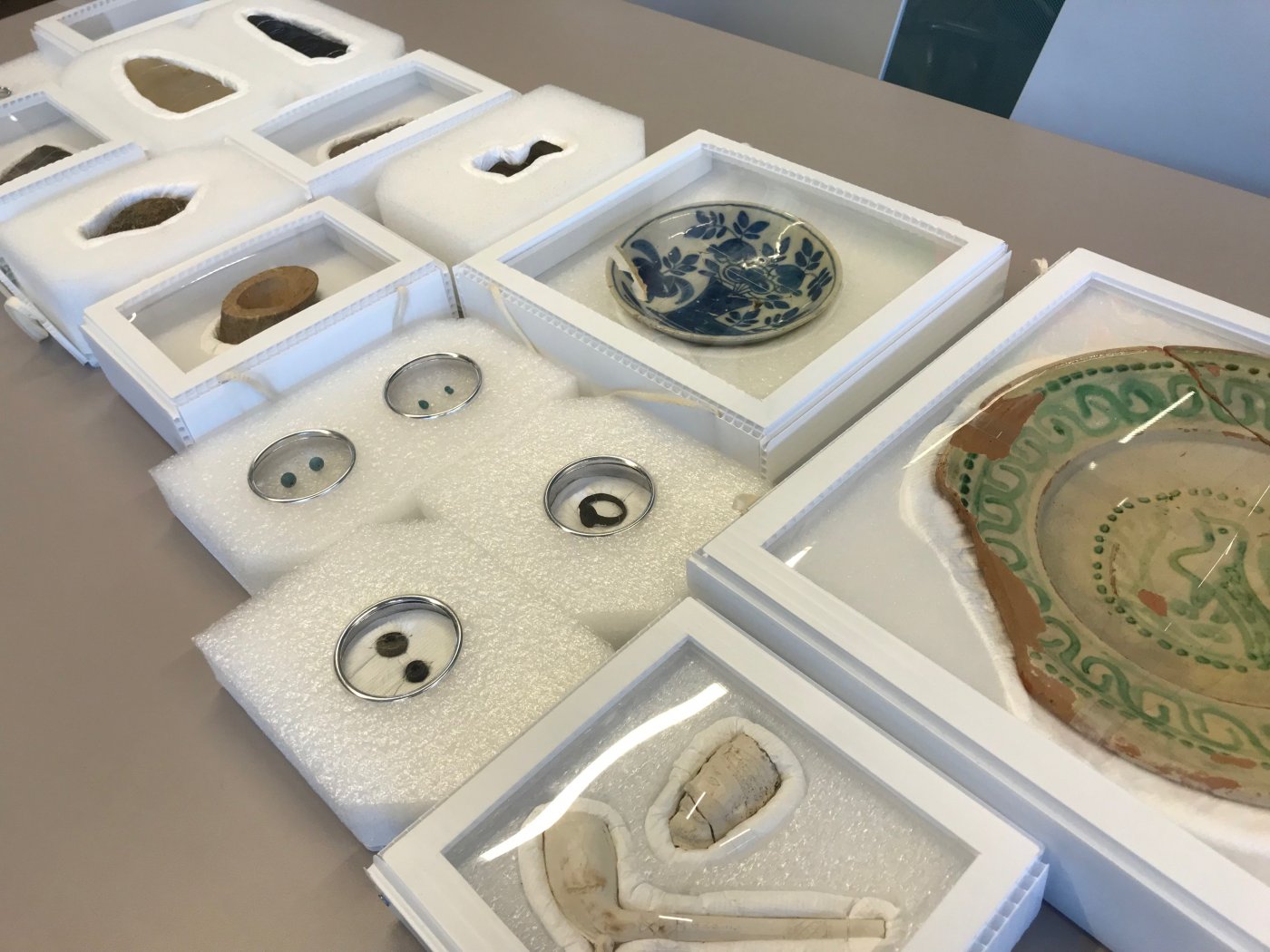The activity offered by Archéo-Québec includes two components: a presentation of key concepts in archaeology, followed by an artifact analysis workshop accompanied by the archaeologist in your class. The educational kits are primarily intended for students in cycles two and three of elementary school. The goal of Archéo-Québec’s educational kits is to explore the different lifeways of the peoples who occupied this land over time through the artifacts analyzed in class. These are grouped according to themes and bear witness to the cultures addressed in the Québec Education Program.
Themes to explore:
Food
The Food educational kit presents the archaeological profession as well as artifacts related to obtaining food (hunting, fishing, etc.), and the tools required for preparing, storing and eating it. Diet, technological change over time and other sub-themes are also covered with this educational kit.
Shelter
The Shelter educational kit presents the archaeological profession as well as artifacts related to the ingenious techniques used to provide shelter in a given environment with the materials at hand. This theme also lends itself to exploring different lifestyles in various periods.
Defence
The Defence educational kit presents the archaeological profession as well as artifacts related to defending oneself against an animal or an enemy, engaging in a war or planning a defensive strategy. Uniforms, military structures, spiritual protection, alliances, exchanges and diplomacy as well as hierarchy are also examined.
Health
The Health educational kit presents the archaeological profession as well as artifacts related to caring for oneself and others. These artifacts touch on themes such as the preparation and conservation of medication, rituals and healing practices, religious rituals, care of the body, public hygiene, medical technologies and more.
What’s archaeology?
The What’s archaeology? educational kit presents the scientific discipline of archaeology, the archaeological profession as well as authentic artifacts related to the lifeways of the various peoples who have occupied this territory. The following sub-themes are addressed: material culture studies, specialized branches of archaeology, dating methods, physical-chemical analyses and more.




©Manon Dumas
Links with the education program
Our educational kits were created in order to support students’ learning and the development of the following competencies.
In the field of Social sciences, elementary school students in Cycles Two and Three learn to:
1) Understand the organization of a society in its territory
- Identifying traces left by a society
- Determining location
- Identifying features of a society’s adaptation to its territory
- Establishing the geographic and historic contexts of a society
2) Interpret changes in a society and in its territory
- Recognizing changes in the boundaries of a territory
- Identifying the causes and consequences of changes
3) Become open to the diversity of societies and their territories
- Describing similarities and differences in the organization of various societies and their territories
In the field of Science and technology, students are asked to make use of tools and objects and to apply the procedures of science and technology. Every ordinary object, from pocket-knife to bicycle, has a lengthy history that can tell us a great deal about the curiosity, tenacity and imagination of human beings. Our workshops encourage objectivity, rigour and precision.
In the new elementary program, teaching is accomplished through various approaches, including the guidance-oriented approach. This approach is designed to present different occupational fields, encourage the development of personal qualities (for example, creativity, self-confidence, tenacity, audacity, self-knowledge) and foster the ability to choose. The approach is based on students’ involvement in diverse projects and, at the same time, gives students an understanding of the world of work, ownership of a project, etc. The presence of an archaeologist in the classroom is an important asset in the context of this approach.
Specific goals of the educational kits:
- Knowledge of the spatial-temporal framework discussed
- Understanding the terms “artifact”, “ecofact”, “immovable remains”, and “stratigraphy”
- Knowledge of the methods of analyzing an artifact
- Classifying an artifact according to its main characteristics
- Associating an artifact to one of the peoples studied in class
- Analyzing the different characteristics of an artifact
- Explaining the lifeways of the different peoples studied through a theme
- Knowledge of archaeological sites and interpretation centers
